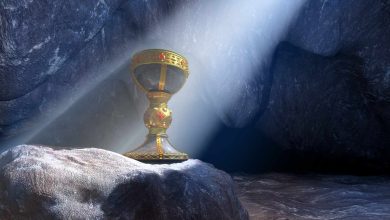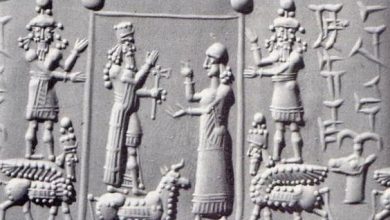Introduction:
The Greek pantheon is a rich tapestry of mythology, woven with intricate tales of gods and goddesses who ruled over various aspects of the universe. These divine beings were not only powerful but also embodied human qualities, making them relatable figures in the ancient Greek culture. This article delves into the fascinating world of the Greek gods and goddesses, exploring their stories, personalities, and significance in the ancient Greek belief system.

The Olympian Gods:
The most prominent group of Greek deities is the Olympian gods, residing atop Mount Olympus. These twelve gods and goddesses were considered the principal deities in the Greek pantheon, each presiding over a specific domain.
1. Zeus – King of the Gods:
Zeus, the mighty god of the sky and thunder, ruled over Mount Olympus as the king of the gods. He was the wielder of the thunderbolt and often portrayed as a majestic figure with a flowing beard. Zeus was not only the god of the heavens but also the guardian of justice and hospitality.
2. Hera – Queen of the Gods:
Hera, the sister and wife of Zeus, was the queen of the gods and the goddess of marriage and family. Despite her regal stature, Hera was known for her jealousy and vengeful nature, particularly against Zeus’s numerous infidelities.
3. Poseidon – God of the Sea:
Poseidon, the brother of Zeus, reigned over the seas and oceans. He was often depicted with a trident, a symbol of his power over the waters. Poseidon was also associated with earthquakes, reflecting the immense force of the sea.
4. Demeter – Goddess of Agriculture:
Demeter, the nurturing goddess of agriculture, was responsible for the fertility of the earth. Her daughter Persephone’s abduction by Hades, the god of the underworld, led to the changing seasons in Greek mythology.
5. Athena – Goddess of Wisdom and Warfare:
Athena, born fully grown and armored from Zeus’s forehead, was the goddess of wisdom, strategic warfare, and crafts. She was a symbol of intellect, often portrayed with an owl, and was a revered deity in Athens.
6. Apollo – God of Sun, Music, and Prophecy:
Apollo, the radiant god of the sun, music, and prophecy, was admired for his artistic and healing abilities. He was associated with the lyre and often depicted as a youthful and handsome figure.
7. Artemis – Goddess of the Hunt:
Artemis, the twin sister of Apollo, was the goddess of the hunt, wilderness, and protector of young girls. She was often depicted with a bow and arrows, surrounded by animals.
8. Ares – God of War:
Ares, the god of war, represented the brutal and chaotic aspects of battle. Despite being feared, Ares was not as revered as Athena, who embodied strategic warfare.
9. Aphrodite – Goddess of Love and Beauty:
Aphrodite, the goddess of love and beauty, was born from the sea foam. Her beauty and allure affected both gods and mortals, and she played a pivotal role in various myths, including the Trojan War.
10. Hephaestus – God of Forge and Fire:
Hephaestus, the skilled blacksmith of the gods, was associated with fire, metalworking, and craftsmanship. Despite being physically imperfect, he created magnificent works of art, including the armor of Achilles.
11. Hermes – Messenger of the Gods:
Hermes, the swift messenger of the gods, bridged the divine and mortal realms. He was also the god of commerce, travel, and thieves, possessing a mischievous and cunning nature.
12. Dionysus – God of Wine and Festivity:
Dionysus, the god of wine, theater, and revelry, was celebrated in festivals and theatrical performances. He represented the wild and unpredictable aspects of nature.
Other Important Gods and Goddesses:
In addition to the Olympian gods, there were numerous other deities in Greek mythology, each with their own unique attributes and stories.
1. Hades – God of the Underworld:
Hades ruled the underworld, where souls of the deceased resided. Despite being associated with death, Hades was not considered an evil figure; rather, he maintained balance in the afterlife.
2. Persephone – Queen of the Underworld:
Persephone, daughter of Demeter, became the queen of the underworld after being abducted by Hades. Her presence in the underworld influenced the changing seasons on Earth.
3. Hestia – Goddess of the Hearth:
Hestia, the gentle goddess of the hearth and home, was revered in domestic rituals. She symbolized the warmth and stability of the household.
4. Eros – God of Love:
Eros, the mischievous god of love, was often depicted as a winged child with a bow and arrow. His arrows could incite love or desire in the hearts of both gods and mortals.
5. Pan – God of Nature and Shepherds:
Pan, the god of nature, shepherds, and rustic music, had the legs and horns of a goat. He embodied the untamed wilderness and was a favorite among shepherds.
Conclusion:
The Greek gods and goddesses continue to captivate the imagination, their stories passed down through generations. The myths surrounding these divine beings reflect the ancient Greeks’ understanding of the world, human nature, and the forces that shape existence. The rich tapestry of the Greek pantheon provides a timeless insight into the complexities of human emotions, relationships, and the eternal struggle between order and chaos.




